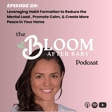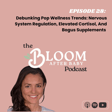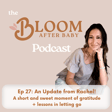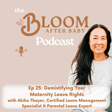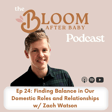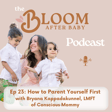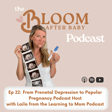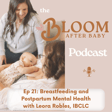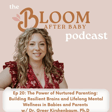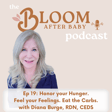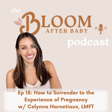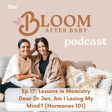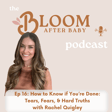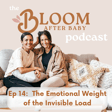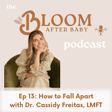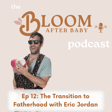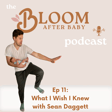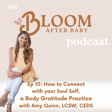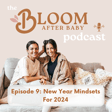
15. Why You Need a Doula, with Jayde Wilkinson, CD
So… What Do Doulas Do? Explaining the Expansive Role of A Doula (AKA Your Birth Tour Guide)
On this week’s episode, Jen sits down with Jayde Wilkinson - Jayde is a Doula, Birth Educator, Doula Mentor, and founded her own doula agency called Birthwise located in northern Indiana. She also hosts a podcast called Birthwise which is geared toward educating other Doulas. Jayde is a leading voice in the discussion around the role of doulas in filling the gap in maternal care, including maternal mental health care.
If you’re not familair with the role of a doula, the difference between a doula and a OBGYN or midwife, or if you’re wondering if a doula could be a good fit for you on you, Jayde breaks it all down.
In this episode you’ll learn:
- All about the emotional, physical, and educational support doulas provide during pregnancy, birth and beyond
- Dispell myths around doula care - How doulas do not interfere with medical care but rather work collaboratively with healthcare providers to ensure holistic and personalized care for mothers-to-be.
- How doulas play a role in mitigating postpartum challenges
- How doulas promote mental health by incorporating discussions in prenatal visits, identifying concerns early, and establishing a support system for new mothers
- If and how to decide if a doula is a good option for you during your pregnancy and birth journey
Resources and links :
Jayde Wilkinson, Birth and Postpartum Doula (@doulajayde)
- Doula Mentorship Program launching February 20th "A 12-week program giving doulas the tools to build the birth business of their dreams and make a lasting impact in their communities." www.birth-wise.com/mentorship
- Nest and Grow Co. Non-Profit Organization: www.nestandgrowco.com
If you enjoyed this episode and appreciate what we share here, please rate and review the show in your favorite podcast app! And come find us on Instagram @bloomafterbaby!
*Please note that this podcast is intended for educational purposes only, and is not a substitute for seeking individualized care from a mental health or medical professional*
Stay Tuned for more to come from Rachel Daggett and Dr Jen Jordan on all things motherhood and mental health - real mom experiences and insights from a licensed psychotherapist and medical doctor.
Learn more about us and access all of our courses, services, and free resources at bloomafterbaby.com
Pregnancy tips Postpartum wellness Prenatal care New motherhood Postpartum recovery Maternal health Pregnancy journey Expectant mothers Postpartum support Motherhood experience Parenting advice Family dynamics Parenting tips Raising children Family well-being Parenting challenges Family relationships Parenting insights Mental health for mothers Emotional well-being Coping with motherhood Maternal mental health Self-care for moms Stress management Emotional resilience Conversations with experts Interviews with mothers Real-life parenting stories Expert advice for moms Support for new mothers Insights on motherhood Informative parenting discussions Working moms Health at Every Size Intuitive Eating Mindfulness Best Podcast Empowering mothers Couples therapy Psychotherapy Breastfeeding tips Sleep during pregnancy Postpartum nutrition Marriage and Family Marriage after baby Balancing work and motherhood Pregnancy self-care Healthy pregnancy habits Relationships
